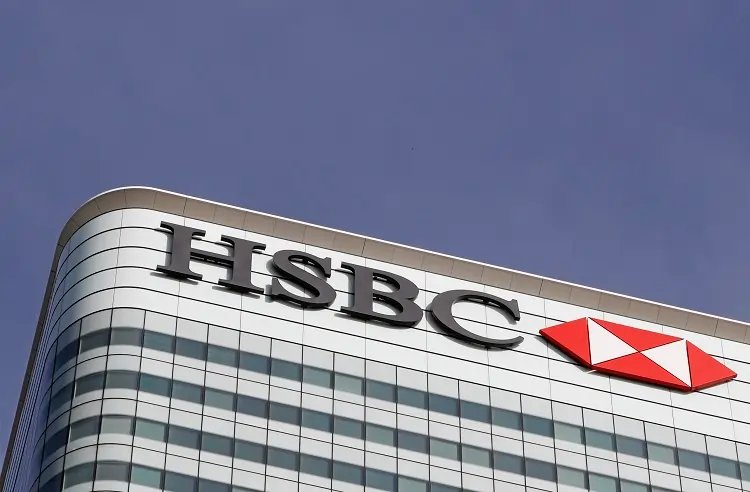HSBC looks to double UK wealth business as banks target ‘mass affluent’


By Lawrence White and Sinead Cruise
LONDON (Reuters) – HSBC aims to double the assets under management in its British wealth business to 100 billion pounds ($131 billion) in the next five years, the division’s head told Reuters, joining rivals in targeting more fee income from the UK’s ‘mass affluent’.
The lender aims to become a top five player in Britain, its head of wealth and personal banking UK Jose Carvalho told Reuters, leaning on its global reach to attract customers who bank with it in more than one market or who are from overseas.
“International connectivity is our competitive advantage and is driving growth,” he said. The bank – whose asset management business is worth $712 billion globally – plans to hire more advisors as part of the push, Carvalho said, without giving numbers.
Britain’s wealth management market is led by St James’s Place, which had AUM of 168 billion pounds at the end of last year.
The biggest UK banks tracked by research firm Coalition Greenwich made $12 billion from wealth management in 2023, up 11% year-on-year, and St James’s Place is projecting 7% future growth in the overall wealth market.
HSBC rivals Barclays and Lloyds have also this year unveiled plans to pursue more income from the ‘mass affluent’, defined by Lloyds as customers with deposit balances of 75,000 pounds to 250,000 pounds.
The sector collectively holds around 4 trillion pounds, half of Britain’s wealth market, according to data from Lloyds and the Investment Association.
The push reflects banks’ desire to expand in sectors less exposed to falling interest rates, and where technology is making it easier to compete with independent providers. Experts warn it’s a crowded market.
“The demand for wealth management services continues to grow… but competition is high as almost every major bank has now declared its ambition to take a bigger slice of the pie,” Nigel Moden, EMEIA banking & capital markets leader at EY, told Reuters.
Big banks have traditionally shunned the mass affluent, leaving them to independent financial advisors such as St James’s Place in favour of going after the super-rich.
Carvalho said he however wanted to focus on that segment, “where we see an opportunity thanks to a culture shift away from some of the IFAs that dominate some 55% of the market”.
HSBC’s strategy involves cross-selling more products to its wealth customers via improved mobile and digital banking channels, as well as encouraging wealthy customers with savings deposits to think longer term about investments.
For the mass affluent market, banks are pursuing a hybrid model of digital technology combined with advisers… banks are able to offer better services, and younger clients especially are more willing to use them,” Grace Miu, head of wealth at Coalition Greenwich, said.
Lloyds is pursuing a similar strategy via its new Lloyds 360 digital tool, and Barclays via its newly combined Private Bank and Wealth Management unit.
However Christian Edelmann, managing partner for Europe at Oliver Wyman, said the collective set of ambitions across all banks “is above what the market is likely to deliver”.
“There will likely be disappointments,” he said.
($1 = 0.7638 pounds)
(Reporting by Lawrence White and Sinead Cruise; Editing by Tommy Reggiori Wilkes and Jan Harvey)
Wealth management is a comprehensive service that combines financial planning, investment management, and other financial services to manage an individual's or family's financial assets.
Asset management is the systematic process of developing, operating, maintaining, and selling assets in a cost-effective manner, often involving investment portfolios.
Cross-selling in banking refers to the practice of selling additional products or services to existing customers, enhancing customer relationships and increasing revenue.
Digital banking channels are online platforms and mobile applications that allow customers to perform banking transactions and access financial services electronically.
Explore more articles in the Banking category











